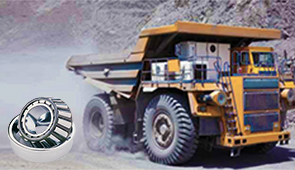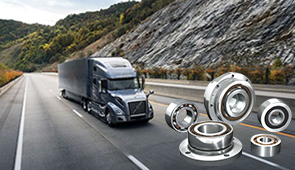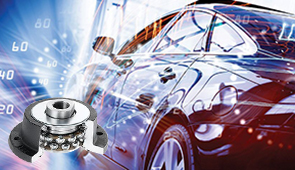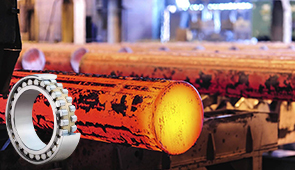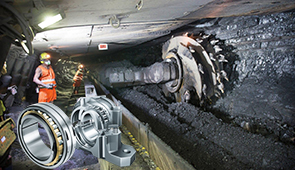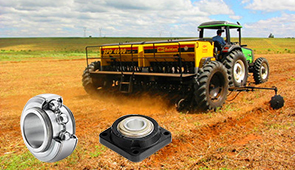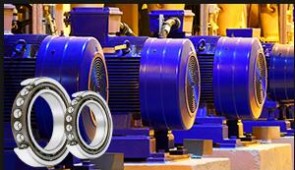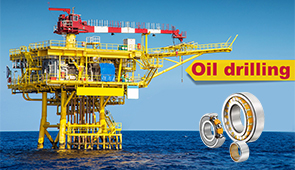NSK vs SKF: A Comprehensive Comparison of Bearing Manufacturers
Bearings are the unsung heroes of countless industrial applications, silently ensuring machinery across the world runs smoothly and efficiently. NSK and SKF remain among the largest and most trusted and innovative bearing manufacturers in the world. How then does this industry giant compare with the other? Whether you’re an engineer or procurement specialist or simply curious about the little things that keep our modern world moving, understanding the differences between NSK and SKF is critical to making appropriate decisions. This article compares their offerings, strengths, and unique traits side by side, thus assisting you in determining the brand to choose for itself.
Historical Background of NSK and SKF
Origins of NSK
NSK Ltd., a company incorporated in Japan in 1916, is one of the oldest and reputable bearing manufacturers in the world. The company established itself as Japan’s first domestically founded manufacturer of ball bearings to meet the rising industrial demand of the early 20th century. Over time, NSK expanded its operations to become internationally regarded as a leader in the manufacturing of bearing innovation.
From its inception, the company emphasized quality and precision, thus building its brand reputation of being dependable. In the middle of the 20th century, the company started spawning subsidiaries and manufacturing plants in foreign lands and consolidated its presence in the international setup. Today, NSK serves industries that range from automotive and aerospace, to medical, and to the robotics worlds, which indicate its ability to be adaptable with technological advances and emerging industrial trends.
NSK’s predominant focus on research and development has been key to its success. The company further innovated in bearing technology, with such products marketed for increased freedom and energy efficiency. This commitment has facilitated NSK’s international-level competition while still upholding its position as an acclaimed and innovative brand in the bearing industry.
Founding of SKF
SKF, or Svenska Kullagerfabriken AB, was established in 1907 in Gothenburg, Sweden. The founder, Sven Wingquist, being an engineer and an inventor, masterminded the self-aligning ball bearing, a truly wondrous invention that solved many problems with conventional bearing designs. This invention gave birth to the worldwide reputation and success of SKF, as it assured smoother movements and efficient operations by machines of different industries.
Since its inception, class production and progressive innovations have been the jewel of SKF; hence, it grew much faster. Between 1910 and 1911, the company began its international expansion campaign by establishing offices and production centers to cater to the growing demand. This internationalization process has been the means with which the company expresses its firm stance in the promotion of advanced bearing technology worldwide-too great a demand for the reliability and accuracy almost to bear on all industrial applications.
During the early years of the company, there was a strong drive to innovate and globalization was also a major component – this strategy helped the company to build a renowned name for itself as the market leader of bearing and engineering solutions. We can view this as a prelude to what would be a litany of advances in technology offered by SKF during its existence, always keeping modern industries’ needs in the center as much as quality, reliability, and sustainability.
Evolution of Both Companies
The evolution of SKF has taught that constant innovation and adaptation to global industrial needs define SKF and its peer companies. It must have started with a bearing company with exceptional standards and reliable goods-for superior bearing solutions. Responding to customer demands and advancing engineering capabilities, the poor Man could have grown globally, exploiting technical expertise to compete in various industrial sectors. Growing over this time, sustainability was introduced into it, ensuring that the company’s processes and products were adjusted to modern environmental requirements.
The counterpart companies followed similar timescale paths of development. Typically, they catered to an engineering and manufacturing segment specializing in different niches within those broad arenas. Their common denominator was the research-heavy focus on developments to counter the problems presented by different industries. Their longevity depended on the ability to fine-tune solutions and apply for evolutionary marketing opportunities in a growing competitive arena.
Both the companies had also consistently demonstrated that a balance between innovation and sustainability holds truest in all matters, whether relating to top-notch innovative technologies or environmental aspects. This harmony has given rise to an emphasis on quality coupled with environmental responsibilities and customer needs, thereby allowing them to continue to hang with substantial entities around the world. This evolution thus presents the fact that continuity in business development demands for adaptability and foresight.
Product Ranges Offered by NSK and SKF
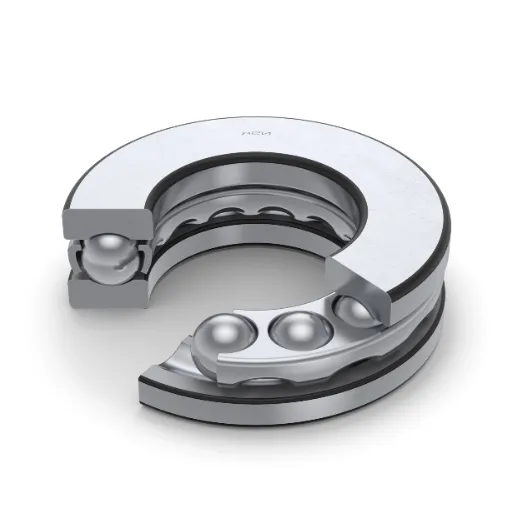
Overview of NSK Bearings
In the field of bearing manufacturing, NSK prides itself as an inseparable leader and thus is a name synonymous with cutting-edge technology and solutions. This manufacturer produces ball bearings, roller bearings, and super precision bearings for a broad spread of applications across various industries such as automotive, aerospace, industrial machinery, and many more. NSK bearings promote performance, reliability, and efficiency, a grease in the hands of any engineer to reduce friction and guarantee smooth motion in mechanical systems.
A big innovation of NSK is energy conservation and sustainability. In this urbane bearing design, power consumption is reduced, and the life of the machinery being served is increased, accounting for cost saving and environmental conservation. NSK also ensures precision engineering to provide optimum performance even in extreme conditions like high temperature and heavy load application.
NSK engages in high-investment activities in R & D to anticipate and keep ahead of new technological trends. Their bearings incorporate features such as advanced sealing technology, optimized materials, and enhanced lubrication systems, thus showing their intention to serve the changing needs of their customers throughout the world. Having global operations, NSK sets industry standards for quality, durability, and innovation.
Overview of SKF Bearings
SKF Bearings tops the list globally in bearings and bearing solutions. For over a century, the company has earned acknowledgment and respect for its innovative engineering efforts and dedication to sustainability. SKF offers products such as ball bearings, roller bearings, plain bearings, and hybrid bearings, among others, tailored to suit the needs of applications ranging from automotive to aerospace, industrial machinery, and energy.
SKF Bearings feature advanced technologies like high-performance seals, designs that reduce friction, and precision engineering. With these technical features, operational efficiency gets enhanced, with energy consumption lowered and service life extended under extreme conditions such as high speed, high temperature, and heavy load. An additional smart sensor technology is incorporated into some SKF products to enable performance and condition monitoring in real time to ensure reliability while minimizing unforeseen downtime.
SKF strongly believes in sustainability, striving to reduce adverse environmental impacts at every stage of its operations and product lifecycle. Using energy-efficient design and promoting circular economy practices, SKF helps reduce carbon emissions and helps its customers meet their sustainability goals. With its vast global network and technical know-how, the company continues to pave the road for bearing technology and to render unmatchable value to industries across the globe.
Industry-Specific Applications
The bearing technology and solutions from SKF are carefully customized to suit the particular needs of various industries, imbibing reliability, efficiency, and sustainability into the products. Here are five industry application domains in which SKF products and expertise play a vital role:
- Automotive Industry: SKF presents advanced bearing solutions for passenger and commercial vehicle applications that improve fuel efficiency and reduce emissions. Low-friction engine bearings can thus increase vehicle fuel economy by as much as 3%.
- Aerospace Industry: With precision bearings, SKF helps aerospace manufacturers optimize the performance and safety of their products. SKF bearings operate under very high temperatures and operating conditions to increase service life in aircraft engines and landing systems.
- Wind Energy Industry: SKF bearing supports of the wind power turbines are robust, durable, and therefore highly reliable with a view toward maintenance cost reduction. They have an innovative design, allowing turbine life to be extended and thereby contributing to the expansion of renewable energy sources.
- Food and Beverage Industry: For food-processing machinery, hygienic and corrosion-resistant bearings from SKF are essential. These bearings are manufactured to meet very strict safety and cleanliness requirements, allowing production to continue without ever risking contamination.
- Railway Industry:In the rail industry, SKF offers solutions in wheelset bearing, gearbox, and traction motor applications. Their products enhance safety and reliability in operation, thereby greatly enabling operators to reduce downtime and maintenance costs.
With these applications in various industries, SKF upholds innovation and sustainability in meeting and addressing different challenges faced by each sector.
Technological Innovations and Patented Features
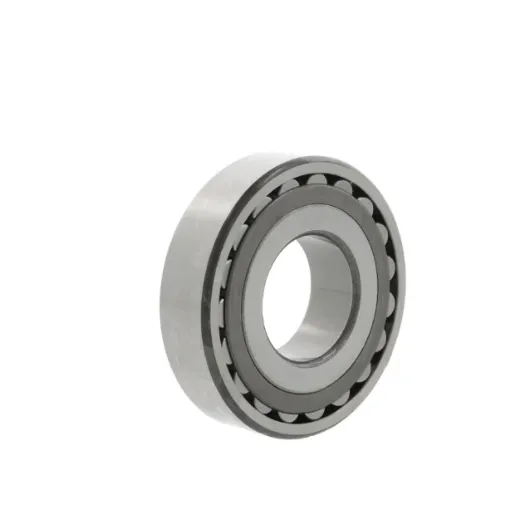
NSK’s Key Technologies
NSK has developed cutting-edge technologies so as to meet the diversified needs of industries across the globe. One of the core innovations in NSK’s profile is the proprietary use of advanced material sciences in bearing production. NSK uses heat-resistant, high-performance steel alloys for its bearing production so that the bearings can withstand the rigors of extreme circumstances such as high temperature and heavy loads with higher durability. With such technologies, bearing performance and life are optimized, directly translating into better operational efficiency, i.e., range in automotive, industrial machinery, and precision equipment.
Another remarkable innovation is the integration of digital technologies into NSK’s products and services. A good example is their Condition Monitoring System (CMS). This technology works by taking measurements with high-end sensors and analyzing them using an AI-based analytics engine to judge bearing health and prognose potential failures. From the provided data on rotation speed, temperature, and vibration levels, CMS allows the company to forecast and stop equipment from breakdowns, which helps save loads of money by way of downtime and maintenance.
In addition to that, NSK leads in energy efficiency and being eco-friendly. Low-torque bearings of NSK are built in such a way as to reduce friction and thus save energy against global issues for sustainability. NSK’s concern does not end with product design, as they instead foster environmentally friendly manufacturing practices and comply with environmental norms. By merging expertise in engineering and sustainability, NSK is an innovative leader in its industry, providing performance with accountability to their clientele around the globe.
SKF’s Innovative Solutions
SKF is an esteemed name across the world when it comes to creating advanced bearing solutions conforming to industry standards. With sustainability and high performance being paramount to them, SKF brings forth technologies that promote energy conservation and have minimum environmental hazards, which retain the operation’s reliability. Their solutions are backed by innovative engineering and materials technology to guarantee optimum product performance even in the harshest of applications.
It evidently stands out for SKF in regard to the bearings it develops with its proprietary optimized design, thereby extending the working life of the machine while reducing maintenance cost. To be more specific, SKF hybrid ceramic bearings provide high-performance machines with great speed capabilities while drastically reducing friction and wear. Furthermore, SKF specalized lubrication for certain applications to maximize energy efficiency with precision performance. The automatic lubrication system is one such Specialization, which exend bearing life and also reduces lubricant waste, making environment a little better to live in.
While SKF’s aspects of activity focus on product creation, it also invests heavily in digital solutions, including IoT and predictive maintenance technologies. Condition monitoring translates equipment into a real-time flow of information. This would enable a predictive analysis and realizing proactive maintenance. The system uses the best algorithms offered by SKF, combined with their competence in rotating machinery. Hence, the industries can develop, advance productivity levels, reduce downtime, and create a sustainable environment with the adopted method of excellence from traditional engineering and digital means. Through these end-to-end solutions, SKF is one of the most innovative players in the bearing market.
Advantages and Disadvantages of NSK and SKF Bearings
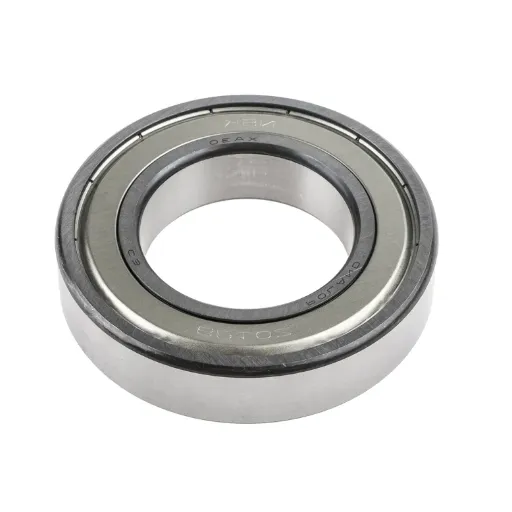
Pros and Cons of NSK Bearings
Advantages of NSK Bearings
- High Precision and Reliability: Given the high precision and reliability of NSK bearings, they find various applications in high-demand applications. The precision engineering involved ensures that it performs consistently through extended periods of use.
- Wide Variety: NSK offers a wide range of bearing types and sizes to cater to customers from all industries so that a specific need can be met.
- Durable and Long Service:The best quality materials and modern manufacturing techniques make NSK bearings last longer, which translates to fewer replacements and lower maintenance costs.
- Reduced Friction and Energy Consumption: In this way, NSK bearings succeed in reducing friction and creating energy-efficient and environment-friendly operations.
- Availability and Support Worldwide: Having an international presence, NSK products can be accessed by customers with relative ease and backed up by strong points of technical support and service.
Disadvantages of NSK Bearings
- Higher Price Than Generic Brands: The price tag is said to be more than those for generic makers or less known brands owing to NSK bearing’s premium quality and advanced features; hence this could be a limitation for some buyers conscious about their budget.
- Installation Requires Expertise: Good workmanship requires meticulous attention to detail when installing NSK bearings because any mishandling can lead to poor performance or early failure.
- Limitation of Certain Specialized Applications: While the range of products offered by NSK is wide, some ultra-specialized applications may require custom solutions that are not readily available.
- Risk of Improper Lubrication: These bearings work well if they are lubricated properly. One can thus conclude that bad lubrication or insufficient lubrication shrinks their potential and lifespan.
- Somewhat Controlled Overdesign for General Applications: For basic applications or those with low demands, these advanced designs of NSK bearings might prove to be an unwarranted expense compared with simpler solutions.
Pros and Cons of SKF Bearings
Advantages of SKF Bearings
- High-Quality Standards: SKU bearings are renowned for being highly engineered, which show a reliable performance in any industrial application.
- Innovative Technology: SKF channels much of its resources into R&D, generating frontier solutions like an Energy Efficient bearing (E2), which lowers friction to sustain energy efficiency by up to 30%.
- Wide Product Range: SKF boasts a huge selection of bearings, the enormous array being able to provide trainers for practically all industrial sectors, ranging from automotive concerns to aerospace, with such diverse requirements for which the company claims to stand.
- Global Availability and Support: The global supply chain and logistics network that SKF maintains ensure that replacements come on time, with technical assistance readily available, ultimately reducing downtime for maintenance or repairs.
- Durability and Longevity: The high-quality materials and precision manufacturing processes used in designing SKF bearings allow for longer service lives, thereby reducing very often the need to replace bearings.
Cons of SKF Bearings
- More Expensive: SKF bearings tend to be more expensive than the competitors and this may be unwanted in applications with stringent budgetary constraints.
- Installation Requirements: Usually, the installation becomes complex as the advanced design of SKF bearings may offer few installation procedures for which they might require expert know-how, which is not available everywhere.
- Conditional to Maintenance: As the other precision components do, SKF Bearings need proper monitoring and maintenance for their performance and being repairable in case of any premature wear.
- Unsuitable for Low-End Applications: In the simpler or forgivable applications, the advanced features of SKF Bearings might be superfluous, thereby rendering it uneconomical.
- Lead Time on Special Bearings: Special or custom SKF bearings may have longer delivery lead-times due to the complex manufacturing process involved.
Comparative Analysis: NSK vs SKF Bearings
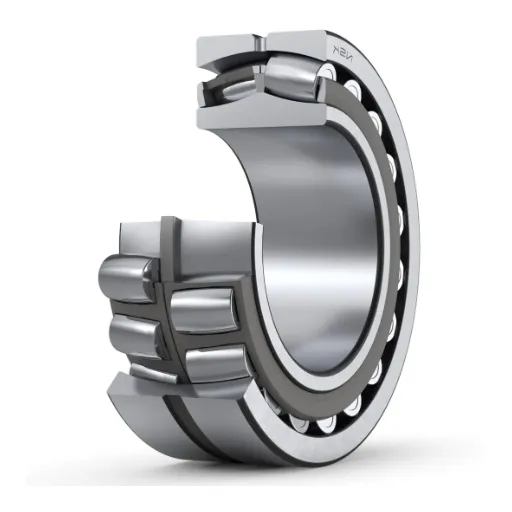
Performance Comparison
That NSK excels in durability, high load, and harshness, while SKF excels in precision, speed, versatility, and innovation.
|
Aspect |
NSK |
SKF |
|---|---|---|
|
Longevity |
High |
Moderate |
|
Accuracy |
Moderate |
High |
|
Load Strength |
High |
Moderate |
|
Speed Range |
Moderate |
High |
|
Adaptability |
Moderate |
High |
|
Advancement |
Moderate |
High |
|
Conditions |
Harsh |
Moderate |
|
Upkeep |
Low |
Moderate |
|
Use Cases |
Heavy-duty |
Diverse |
|
Guarantee |
Standard |
Comprehensive |
Cost-effectiveness and Value
In terms of cost-effectiveness and value, both NSK and SKF bearings have their particular advantages, catering to different priorities. Personally, I think the choice depends mostly on the actual application and the long-term aspirations of the user. NSK bearings tend to become very durable and reliable when extreme conditions are involved and thus saving maintenance and replacements over a long period put cost to their favor. For industries which are more resilient to heavy use and fewer replacements, NSK has a greater value.
On the other hand, SKF bearings offer an extraordinary choice where precision, speed, and versatility for diverse applications are required. The SKF bearings can have a higher initial price; however, their advanced engineering and versatile nature will make them worth investing in when the scenario calls for high-end performance and innovation. Finally, the return of SKF bearings is guaranteed by its full warranty and state-of-the-art technology, thus giving comfort to those willing to optimize their processes and efficiency.
From my standpoint, choosing “best” here is merely a question of weighing application-specific requirements. NSK would ensure ease of maintenance and performance at extreme conditions, all being reasonably priced. While in some cases the best value is through unmatchable precision and flexibility and advanced solutions, SKF justifies such a price through the practical efficiency it offers and versatility of options. Both brands provide the quality; thus aligning them toward their applications will ensure best cost efficiency and, in turn, good investment returns.
Making the Right Choice: NSK Bearings vs SKF
NSK is much more suited for durability, heavy loads, and harsh environments than SKF which is more into precision, speed, versatility, and innovation.
|
Aspect |
NSK |
SKF |
|---|---|---|
|
Durability |
High |
Moderate |
|
Precision |
Moderate |
High |
|
Load |
High |
Moderate |
|
Speed |
Moderate |
High |
|
Versatility |
Moderate |
High |
|
Innovation |
Moderate |
High |
|
Environment |
Harsh |
Moderate |
|
Maintenance |
Low |
Moderate |
|
Applications |
Heavy-duty |
Diverse |
|
Warranty |
Standard |
Comprehensive |
This table provides a clear and concise comparison to help in decision-making between NSK and SKF bearings.
Frequently Asked Questions (FAQ)
Q: What major differences exist between nsk and skf bearings?
A: The major differences between nsk and skf bearings have to do with the design, manufacturing, and application. NSK bearings are distinguished by stringent quality control and durability, whereas SKF bearings provide tailored solutions for industrial purposes. Depending on the machine’s performance needs, both would be chosen for their various advantages.
Q: How does quality control differ between nsk and skf?
A: They both used to go through stringent quality control, but the phases might be different. NSK follows a quality-control regimen that includes inspection to ensure minimal dimensional variation, whereas SKF focuses on providing solutions tailored to applications, and the bearings should meet load conditions touted by these related applications.
Q: Which is the leading bearing brand in manufacturing?
A: Both bear companies (and two big ones at that) are considered leaders in bearing manufacturing. NSK Ltd. is considered to be producing high-quality bearings, especially emphasizing durability and reliability, while SKF boasts an extremely wide range of bearings for meeting almost any requirement of an application, including high-speed bearings.
Q: How does NSK perform against SKF under demanding conditions?
A: Under heavy-duty conditions, the NSK bearings are considered the best due to their manufacture from the finest premium steel and subject to rigorous quality control, ensuring long service life. SKF bearings, conversely, do perform well under certain demanding conditions, wherein they offer solutions for particular applications so that in various industrial settings, they will always offer a consistent and reliable performance.
Q: What kind of bearing does each brand offer?
A: Given the wide spectrum of bearing types, NSK offers deep groove ball, angular contact, and high-speed bearings with their respective subcategories. SKF is an all-encompassing bearing line provider for any machinery application, including special bearings for the food industry and other harsh conditions.
Q: Can I pick one brand for specific applications?
A: Yes, NSK vs. SKF bearing choice depends on the application’s requirements. For example, if your particular machinery demands high-speed performance and durability, then NSK bearings are the better options. When, however, you require the bearings for other more specific conditions, SKF may provide you with a custom solution.
Q: What is bearing reliability in nsk vs skf?
A: Bearing reliability is pivotal in the functioning of any machinery in different industrial applications. Both NSK and SKF are known for their reliable quality products, yet it depends on the load conditions and other operational considerations regarding what must be applied. Selection of the right bearing can increase the life of fixed machinery extensively.
Q: How do nsk and skf bearings compare in terms of service life?
A: The two brands of bearings, NSK and SKF, are designed to last a long time, but the life of a bearing depends upon factors like types, load conditions, and maintenance methods. NSK bearings can be rated highly for durability under stringent conditions, whereas SKF-type bearings can be crafted to survive peculiar constraints that perturb a specific application.
UCTH213-40J-300 with Setscrew(inch)
CNSORDERNO: Normal-duty(2)
TOGN: UCTH213-40J-300
SDI: B-R1/8
SD: 2 1/2
UCTH212-39J-300 with Setscrew(inch)
CNSORDERNO: Normal-duty(2)
TOGN: UCTH212-39J-300
SDI: B-R1/8
SD: 2 7/16
UCTH212-38J-300 with Setscrew(inch)
CNSORDERNO: Normal-duty(2)
TOGN: UCTH212-38J-300
SDI: B-R1/8
SD: 2 3/8
UCTH212-36J-300 with Setscrew(inch)
CNSORDERNO: Normal-duty(2)
TOGN: UCTH212-36J-300
SDI: B-R1/8
SD: 2 1/4
UCTH211-35J-300 with Setscrew(inch)
CNSORDERNO: Normal-duty(2)
TOGN: UCTH211-35J-300
SDI: B-R1/8
SD: 2 3/16
UCTH211-34J-300 with Setscrew(inch)
CNSORDERNO: Normal-duty(2)
TOGN: UCTH211-34J-300
SDI: B-R1/8
SD: 2 1/8









